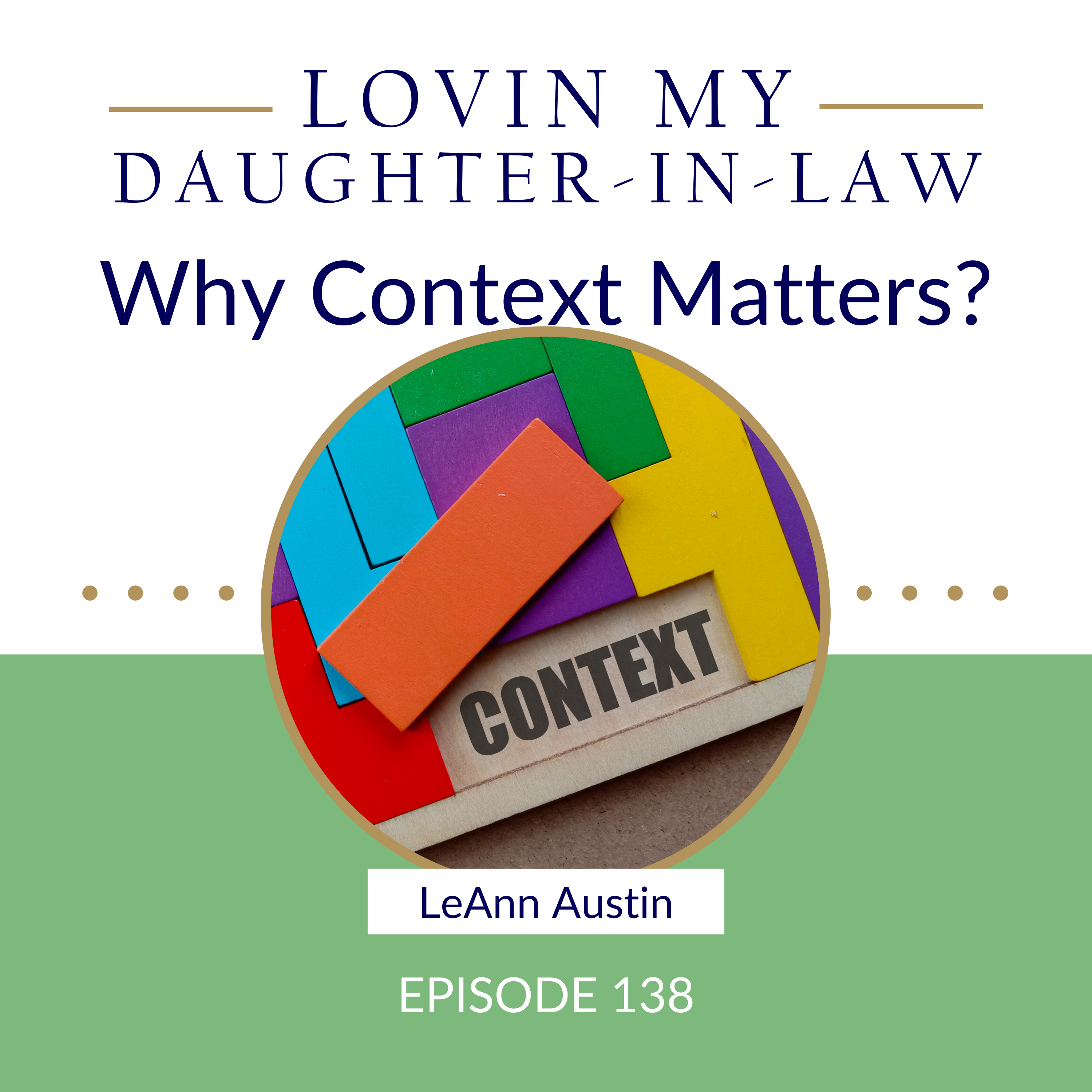Have you ever heard a phrase and been upset or offended?
Then later when context was included, you better understood why this was said.
Context matters and here are 5 reasons why…
Welcome to Lovin My Daughter-in-law Podcast. I’m relationship expert and master certified coach LeAnn Austin. I’ll help you create more connection and fun with others, especially your daughter-in-law.
Hey y’all, you’re listening to Lovin My Daughter-in-law, episode #138: Why Context Matters
I remember when I was a kid playing that game where you sit in a big circle or a long line and one person starts with a simple sentence and then whispers it to the next person. Each person continues to whisper what they heard to whoever they’re next to, and then the last person says the sentence out loud.
It was so interesting to me how the first sentence and the last sentence that was shared at the end were completely different. This game is an excellent example of why context matters. When people hear just one sentence, and it’s misheard or taken out of context, the meanings and the words can dramatically shift.
Context is important because it provides the background and framework needed to fully understand information, actions, or events. Context is like the full picture. And without it, words can easily be misunderstood, just like in the game.
So why does context matter? Well, here are five reasons for you to think about.
Context clarifies meaning. Words, phrases, or actions can have different meanings depending on the situation. Context helps clarify the intended meaning, reducing the chance of misunderstandings.
Context enhances communication. Effective communication relies on shared context. It ensures that both the speaker and the listener are on the same page, leading to a clearer and more accurate exchange of information.
Third, context informs decision making. It helps us make informed decisions by giving us a complete picture of the situation. It helps us to weigh all the factors before reaching a conclusion.
Fourth, context prevents misinterpretation. Without context, statements or actions can be easily misinterpreted. Context provides the necessary information to interpret things as they were intended.
And last, context enables better understanding of behavior. Understanding the context behind someone’s actions or decisions helps us to empathize and to respond appropriately. It gives us insight into the motivations and circumstances that influence their behavior.
So basically, context acts as a lens through which we view and understand the world around us, helping us to recognize the true meaning behind words, actions, or events. Without it, we may misinterpret what’s actually being communicated.
Kenneth Noland said: “For me context is key – from that comes the understanding of everything.” Hmm, something to think about.
Have a good one y’all, and here’s to context, connection, and love. If this podcast resonates with you, share it with a friend and leave a review.
If you enjoyed this podcast, take a look at my Connection Crew Program and One-on-One Coaching options by checking out the show notes. In those programs, I teach and coach a variety of ways to have more fun and connection in your relationships. I also share how I have created a beautiful relationship with my daughters-in-law.
And if you want one easy question you can keep in your back pocket and use to increase the love you feel for your daughter-in-law today, go to leannaustin.com and get the one question.

